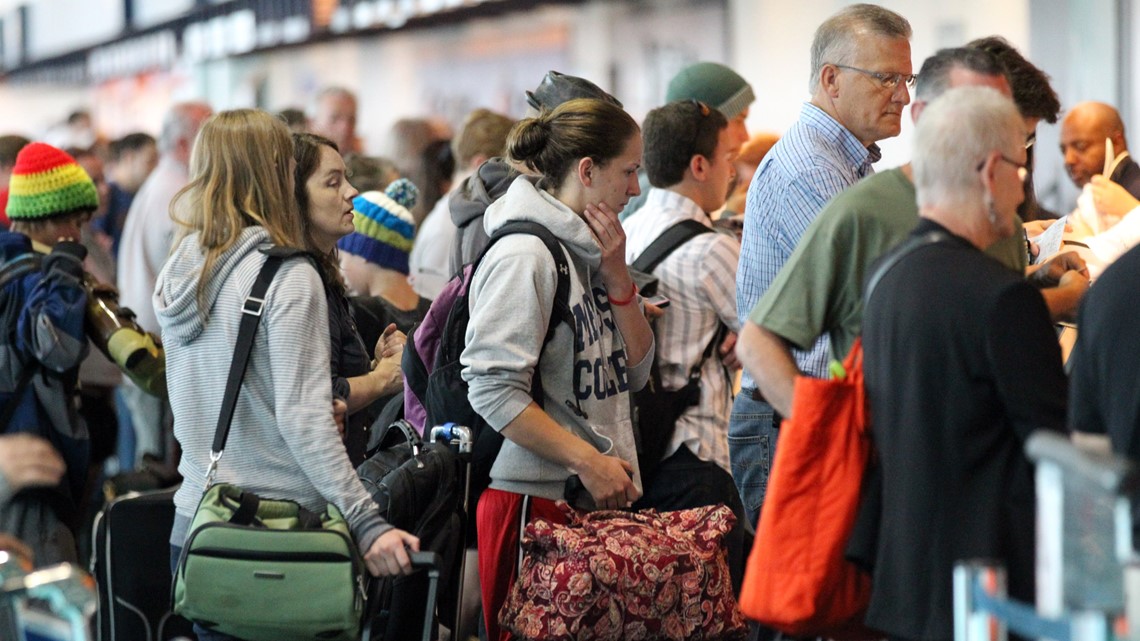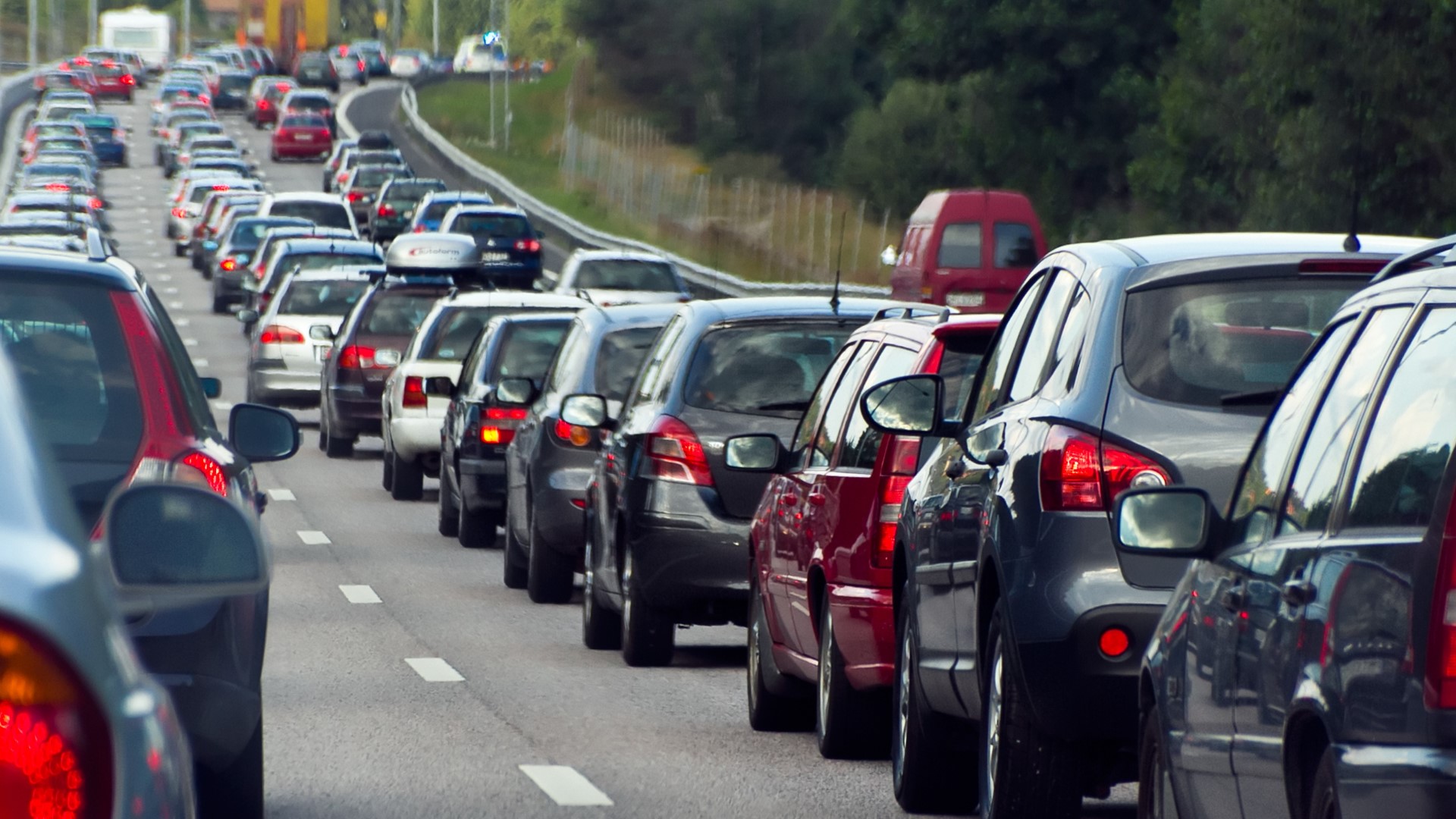PORTLAND, Ore. — Gas prices may not be as high as they were last year, but they're still plenty steep — and that, combined with expected heavy traffic, will be a travel headache for Oregonians taking Fourth of July trips this year.
Nearly 600,000 Oregonians are expected to take a July Fourth trip this year, exceeding travel volume seen before the pandemic, according to AAA.
"The numbers are pretty staggering. We're looking nationwide at 51 million Americans traveling over the Fourth of July and that includes 587,000 Oregonians taking a trip," said Marie Dodds, director of government and public affairs for AAA Oregon-Idaho.
The Fourth of July is usually the second-busiest holiday for travel, behind only Thanksgiving, and Dodds said this year is no exception. As AAA was conducting its research, Dodds said they asked people why they decided to travel this Fourth of July. She said the answers indicated there's a lot of pent-up demand for travel after the pandemic.
"People are saying, 'You know what, I have some available money right now, I want to spend it. I want to go out and travel, because I didn't do a whole lot of travel the last few years and I want to start getting out there again,'" Dodds said.
Gas prices are down, but they're still among the highest in the country
Oregon has the fourth-highest price for gasoline in the nation at $4.65 for a gallon of regular unleaded fuel. While that number is among the highest in the country — and certainly not cheap — it is down nearly a dollar from this time last year, when the price of gas during the Fourth of July weekend in Oregon averaged $5.55 a gallon.
Only Hawaii ($4.73), California ($4.83) and Washington ($4.99) have higher gas prices right now than Oregon.
The price of gas in Oregon has gone up over the past month. According to AAA, Oregon has seen its average price for a gallon of gas rise 32 cents since June 8, from $4.33 to the current average of $4.65.
"Gas prices are more expensive than they were a few weeks ago, but a lot cheaper than Fourth of July 2022," Dodds said.
Want to avoid traffic? Here's when to leave (and when to come back)
One reason for the expected increase in Fourth of July travel this year is because the holiday falls near the middle of the week instead of on a weekend. Dodds said a lot of people, instead of looking at it as just a one-day event, are taking the opportunity to make an extended trip out of it.
"Instead of just looking at it as being a Tuesday," Dodds said, "they're saying, 'Hey, let's go on Thursday or Friday before the holiday and come back on Wednesday or Thursday after the holiday.'"
So many people planning extended trips means the "crunch times," as Dodds calls them, for heavy traffic actually fall on Wednesday and Thursday of this week, particularly in the afternoons.
"We'll not only have holiday travelers, but we'll have those afternoon commuters as well," Dodds said. "So if you are traveling [Wednesday and Thursday], if you can avoid those afternoon hours, that's great."


Dodds said Thursday and Saturday this week will be the busiest days at airports due to holiday travel. Weather-related delays at airports across the country may exacerbate the situation. The Associated Press reported that the worst disruptions have happened along the East Coast due to persistent thunderstorms this week.
Portland International Airport (PDX) has seen some flight delays Wednesday due to weather from storms in the Midwest and on the East Coast. "We're not seeing anything specific out of PDX other than some delays and cancellations made by airlines from weather," a PDX spokesperson told KGW.
FLIGHT DELAYS: Click here to see the latest flight delays and cancellations
Dodds said because of the expected record volume of travelers, even those who pick non-peak travel times are likely to see heavy crowds at airports and a lot of vehicles on the road.
"If you're driving, count on it taking longer to get to your destination than usual," Dodds said, adding that for some travelers, especially those traveling through urban areas, it could take as much as two or three times as long to get to a traveler's destination.
It may be harder to avoid peak return times for those traveling home after a Fourth of July trip. "Wednesday will be the biggest return day," Dodds said, adding that Thursday will also be busy with people coming back after the holiday. So if it's possible to extend the trip until Friday, congestion should ease up for return travelers.
Be prepared
Dodds reminded travelers, especially those on the roads, to be prepared before they leave home. She said AAA expects to rescue 8,000 people across the state over the Fourth of July travel period, saying that the most common issues are dead batteries, flat tires and lockouts.
"If you are driving, make sure you're ready for that road trip," she said. "Make sure you've got that emergency kit in your car."
On its website, the National Safety Council recommends the following items for an emergency supply kit that's kept in the trunk of a vehicle:
- A properly inflated spare tire, wheel wrench and tripod jack
- Jumper cables
- Tool kit and/or a multipurpose utility tool
- Flashlight and extra batteries
- Reflective triangles and brightly colored cloth to make your vehicle more visible
- Compass
- First aid kit with gauze, tape, bandages, antibiotic ointment, aspirin, a blanket, nonlatex gloves, scissors, hydrocortisone, thermometer, tweezers and instant cold compress
- Nonperishable, high-energy foods, such as unsalted nuts, dried fruits and hard candy
- Drinking water
- Reflective vest in case you need to walk to get help
- Car charger for your cell phone
- Fire extinguisher
- Duct tape
- Rain poncho
- Snow brush
- Shovel
- Windshield washer fluid
- Warm clothing
- Cat litter for traction
- Blankets
The NSC also recommends people keep family and emergency phone numbers (auto insurance provider, towing company, etc.) in their phone.

